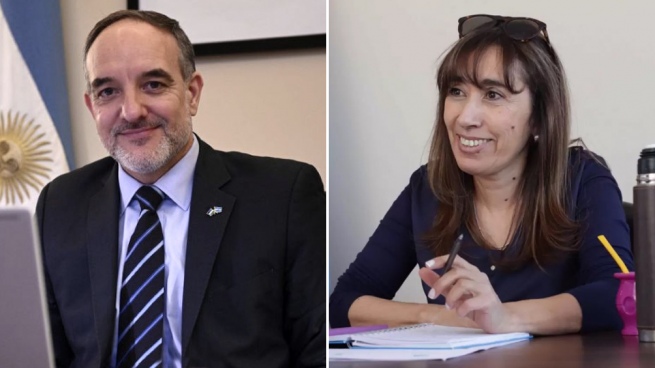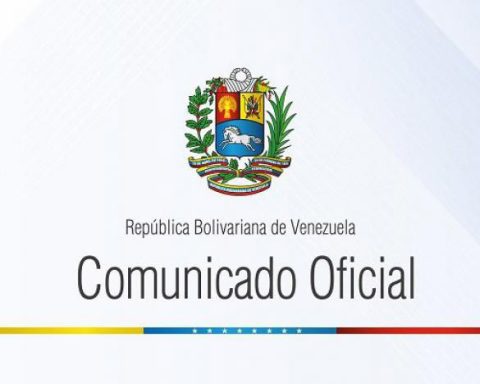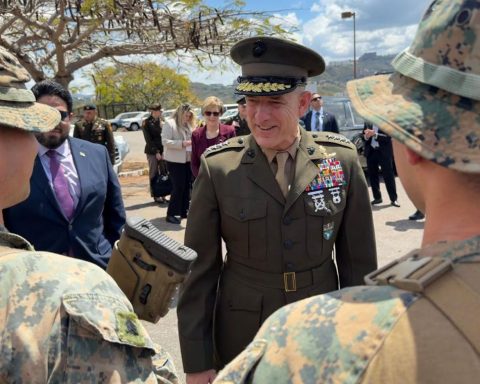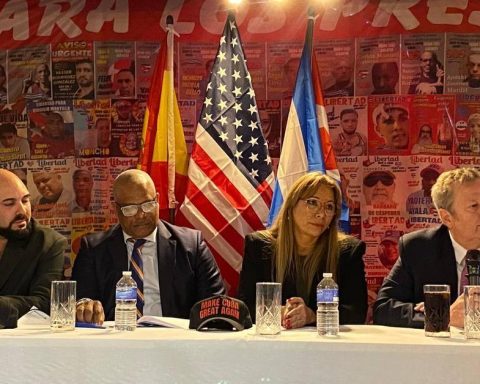The president of the Supreme Court of Justice and head of the Judicial Council, Horace Rosattiwill take the oath of the Citizen Unity senator this Thursday Martin Donate and the national deputy for the UCR Roxanne Reyeswho will assume as representatives of Congress in that body in charge of the appointment and ratification of judges and prosecutors.
The new representatives will be sworn in at 12 o’clock in the Bermejo room on the fourth floor of the Palace of Justice, as reported.
The Supreme Court of Justice accepted on Tuesday the appointment of these new counselors with the signature of the four ministers of the Court as part of the agreed 11/2022.
In this way, the entry of the two political representatives, whose appointments had been judicially questioned by the senator, was formalized. Louis Judge and the president of the ruling bloc in Deputies, German Martinez.
On April 20, the new representatives Jimena de la Torre, Agustina Díaz Cordero, Carina Pamela Tolosa and María Fernanda Vázquez were sworn in as counselors, representing the judges, lawyers and the academic sector.
In the case of Doñate and Reyes, there was a significant delay by the Court in convening their jury, based on the political-judicial conflict that was generated in Congress by the definition of these two vacancies.
Doñate and Reyes were made official by the authorities of both legislative chambers almost a month ago, on April 20, and just two days ago the judges of the Court signed the agreement that accepts them as full members in the constitutional body.
In recent days, the federal Justice in Contentious-Administrative matters rejected the appeals presented by both the Judge and Martínez to have the appointments annulled and although there is a “per saltum” request in the Court presented by the Cordovan senator, the agreed resolves that claim in advance and makes the decision to add the directors firm.
The Judge’s argument before the Justice was that the division of the official party in the Upper House involved an illegal maneuver to take away the place for which he had been appointed by the PRO bloc, while Martínez considered that the appointment of the radical deputy Reyes was taken without consultation by the president of the lower house, Serge Massa.
In both cases, the Justice considered that they were not subject to judicial intervention because they belong to the dynamics of the Legislative Power and that the objective conditions were not met to grant the requested resources.
With the swearing-in of these two members, the Council will be integrated as defined by the Court in its ruling last December, which declared the organization’s integration unconstitutional due to an imbalance between the technical sector of judges, lawyers and academics and the political sector, made up of legislators. and the representative of the Executive Branch.
In the previous composition, the Council had thirteen members: three judges, six legislators, two lawyers, a representative of the Executive Branch and one from academia.
Constitutional adequacy
This integration was sanctioned by a law passed by Congress in 2006, but a claim of unconstitutionality by the Bar Association of the City of Buenos Aires ended up being accepted by the Court, which decided to urge Congress to sanction a new law with equal technical or political representation. .
For this constitutional adaptation, the Court set a term of 120 days, until April 18; Otherwise, it would return to the previous composition of twenty members, with the presidency in charge of the head of the high court, in those circumstances, Horacio Rosatti.
Although the Senate gave half sanction to a new law for the Council, the balance of power between the ruling party and the opposition in Deputies paralyzed the sanction of the norm, while in parallel the new members were elected for the eventuality of returning to the previous composition. .
On April 18, Rosatti assumed the leadership of the body incorporated in the constitutional reform of 1994, even though the six missing members had not assumed office.


















